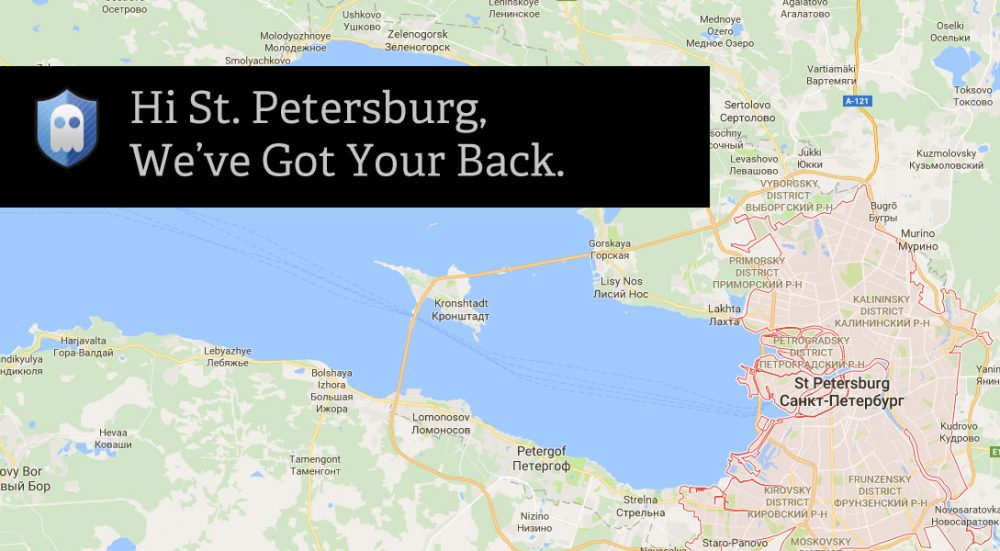Our most recent server is located in St. Petersburg, Russia. This is our third server in the Russian Federation as we continue to grow our global network. Ghost Path is committed to consistent improvement and expansion.
Ghost Path VPN Servers
The St. Petersburg VPN server should be incredibly fast for you if you’re in Russia or in the Baltic region.
Ghost Path now has 137 operational servers in 44 countries providing our customers with hundreds of anonymous IP addresses. You can view an up-to-date list of all of our servers here. With Ghost Path you have the freedom to browse the world wide web using any of our remote servers.
How To Use The St. Petersburg VPN Server
Open the Ghost Path VPN client. If you’re currently located in the Russian Federation the St. Petersburg gateway will automatically be in your closest Locations connection folder.
If you happen not to be in Russia but still would want to connect to the new server in St. Petersburg: all you need to do is go to the locations tab of Ghost Path’s app and simply create a new locations folder. Drag the St. Petersburg, Russia server to that folder and you’re good to go!
About Ghost Path VPN
Ghost Path is both secure and pocket-friendly. We take your privacy very seriously and never log your data. We offer a 7-day free trial.

